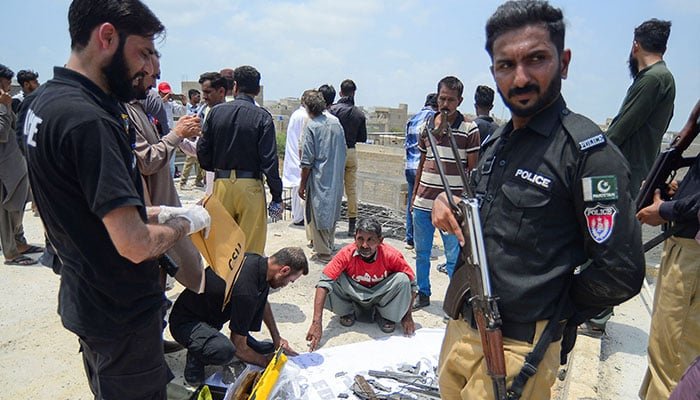Saudi Arabia
The Ministry of Interior has informed the National Assembly that 5,402 Pakistani nationals involved in begging have been deported from six different countries since the beginning of 2024. The issue, described as serious and ongoing, has raised concerns about illegal migration, human trafficking, and the exploitation of vulnerable individuals.
According to the Ministry’s report, the highest number of deportations occurred in 2024, with 4,850 individuals sent back to Pakistan during that year alone. Of these, a significant 4,498 deportees were returned from Saudi Arabia, making it the leading country in taking action against foreign nationals involved in street begging and similar unlawful activities.
Other countries that have deported Pakistani beggars during this period include Iraq, Malaysia, the United Arab Emirates (UAE), Qatar, and Oman. Although these countries deported fewer individuals than Saudi Arabia, the trend underscores a regional crackdown on undocumented or misusing visitors, particularly those entering under the guise of religious pilgrimages or labor visas.
The trend has continued into 2025, with 552 deportations recorded so far, once again led by Saudi Arabia. The ongoing nature of these deportations indicates that despite law enforcement efforts and awareness campaigns, the issue persists and demands urgent attention from both the government and society.
FIA Cracks Down on Human Trafficking at Karachi Airport
In parallel with these deportations, the Federal Investigation Agency (FIA) has stepped up efforts to combat human trafficking and fraudulent travel activities. One recent operation at Karachi’s Jinnah International Airport resulted in the interception of a group of women who were allegedly attempting to leave the country under false pretenses.
According to FIA officials, these women claimed to be Umrah pilgrims but failed to provide valid return tickets or legitimate accommodation plans in Saudi Arabia—two essential requirements for religious travel. Their lack of documentation and suspicious behavior raised red flags, prompting authorities to investigate further. The FIA suspects that these women may have been part of a trafficking network using religious pilgrimages as a cover to smuggle individuals abroad for begging or illegal labor.
The agency’s timely intervention prevented them from boarding their flight, effectively stopping what could have been another case of exploitation under the veil of religious observance.
A Growing Social Concern
These deportation figures and attempted trafficking incidents reflect a wider social and economic problem. Many of the individuals involved are believed to come from underprivileged backgrounds, lured by traffickers or intermediaries promising jobs or opportunities abroad. Once in foreign countries, some are forced into begging, low-paying labor, or exploitative conditions, damaging both their well-being and Pakistan’s image internationally.
Human trafficking, in particular, remains a serious concern. Smuggling networks often use legal travel channels such as Umrah or work visas to bypass immigration checks. Vulnerable people—especially women and children—are at risk of being exploited for financial gain by traffickers who operate both inside and outside Pakistan.
See more:
https://freedompakistan.com.pk/category/world
Government Response and Way Forward
The Ministry of Interior, along with the FIA and other relevant departments, has pledged to strengthen border controls, improve travel verification processes, and take strict action against traffickers and agents involved in sending people abroad for illegal activities.
Moreover, efforts are being made to educate the public, especially in rural and low-income areas, about the dangers of falling prey to traffickers who disguise themselves as recruiters or travel facilitators. There is also a growing call for enhanced regional cooperation to address cross-border trafficking networks and to safeguard the rights and dignity of Pakistani citizens abroad.
While deportations and law enforcement actions help in the short term, experts emphasize that long-term solutions must include economic opportunities at home, better regulation of overseas employment agencies, and comprehensive rehabilitation programs for returnees.
The issue, as highlighted in the National Assembly, is far from over—but recent interventions show that authorities are beginning to take more proactive steps to address the root causes and consequences of illegal migration and human trafficking.




